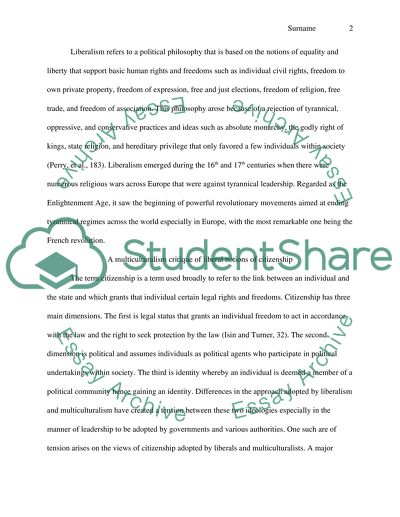Cite this document
(“Multiculturalism versus Liberalism Essay Example | Topics and Well Written Essays - 1750 words”, n.d.)
Multiculturalism versus Liberalism Essay Example | Topics and Well Written Essays - 1750 words. Retrieved from https://studentshare.org/history/1494249-multiculturalism-versus-liberalism
Multiculturalism versus Liberalism Essay Example | Topics and Well Written Essays - 1750 words. Retrieved from https://studentshare.org/history/1494249-multiculturalism-versus-liberalism
(Multiculturalism Versus Liberalism Essay Example | Topics and Well Written Essays - 1750 Words)
Multiculturalism Versus Liberalism Essay Example | Topics and Well Written Essays - 1750 Words. https://studentshare.org/history/1494249-multiculturalism-versus-liberalism.
Multiculturalism Versus Liberalism Essay Example | Topics and Well Written Essays - 1750 Words. https://studentshare.org/history/1494249-multiculturalism-versus-liberalism.
“Multiculturalism Versus Liberalism Essay Example | Topics and Well Written Essays - 1750 Words”, n.d. https://studentshare.org/history/1494249-multiculturalism-versus-liberalism.


